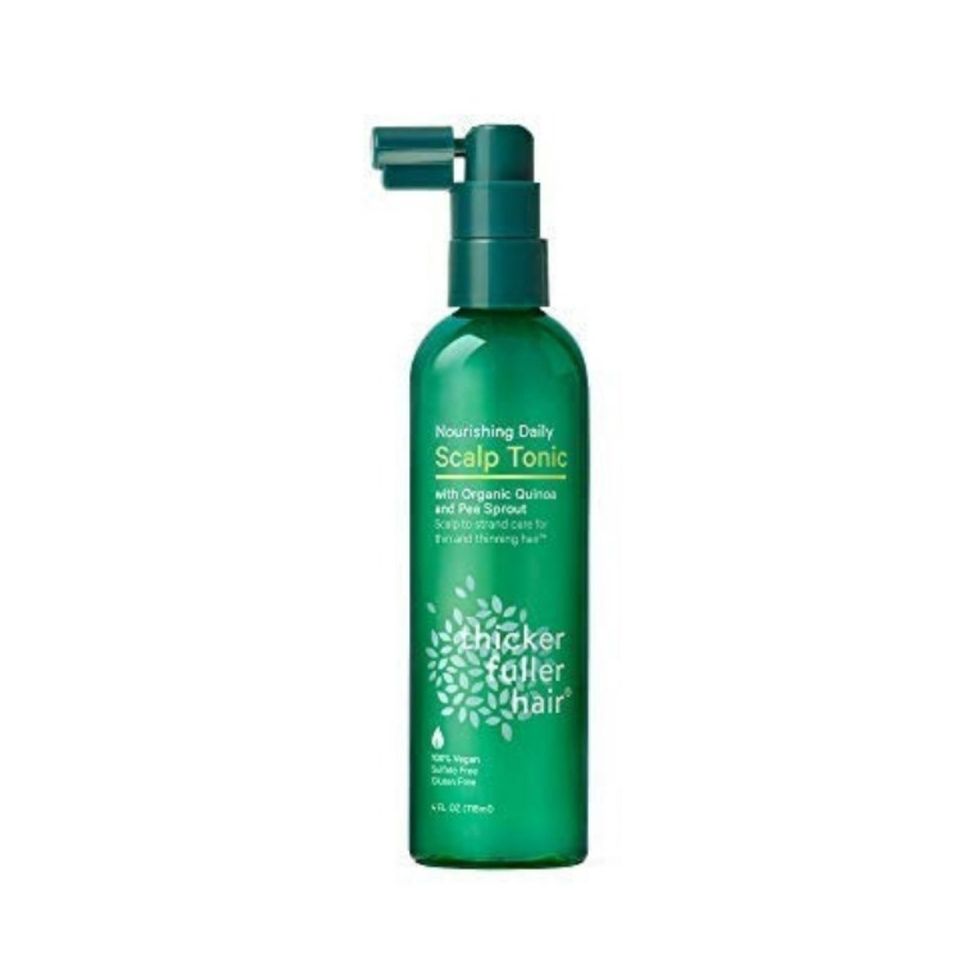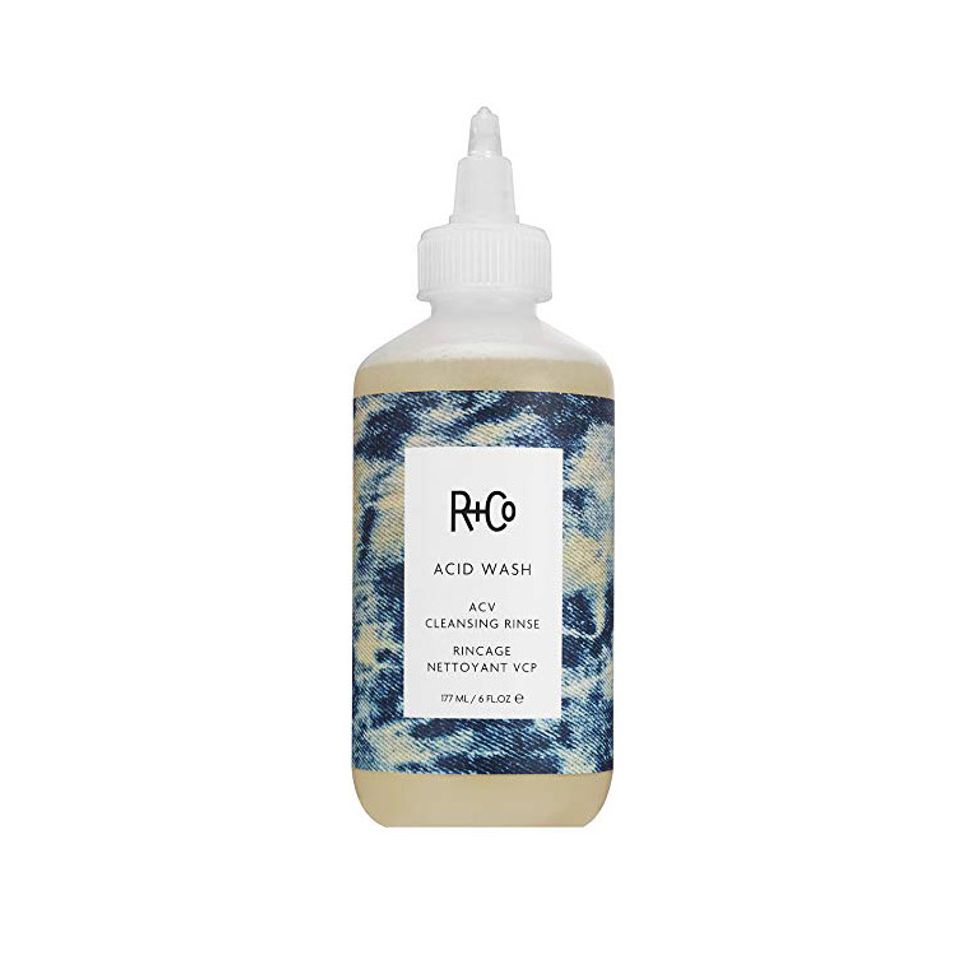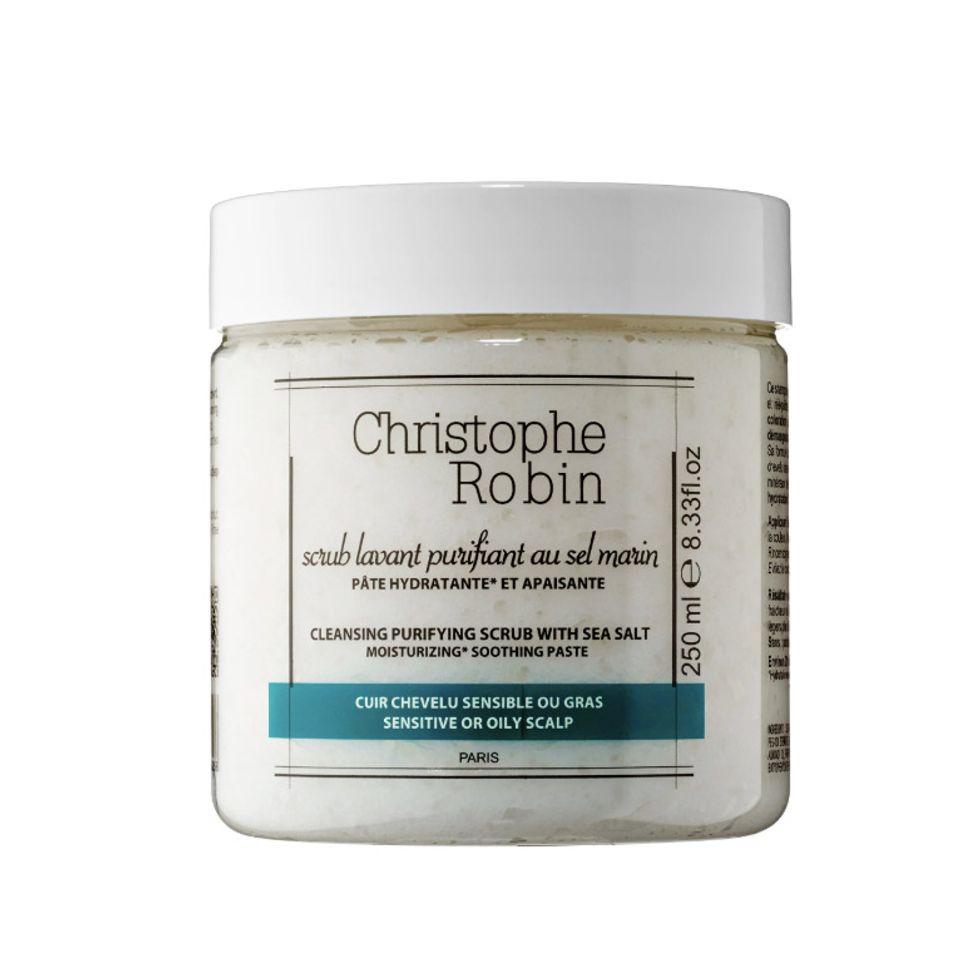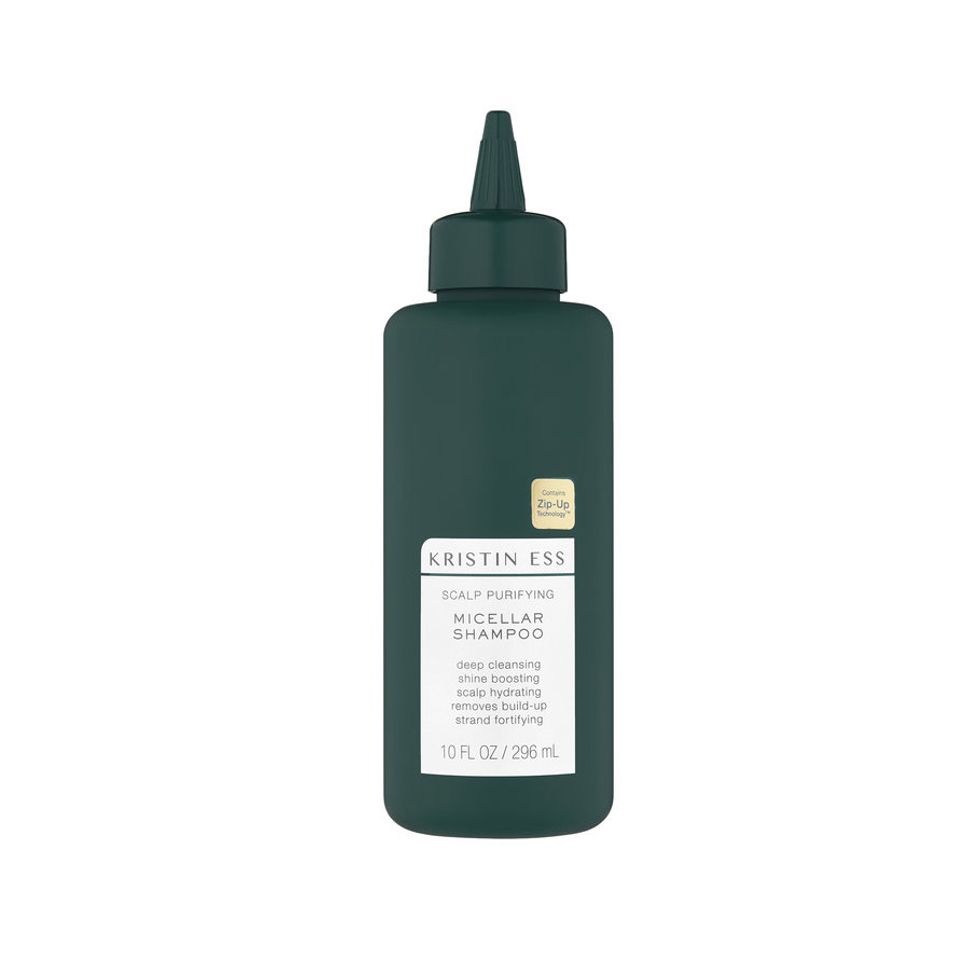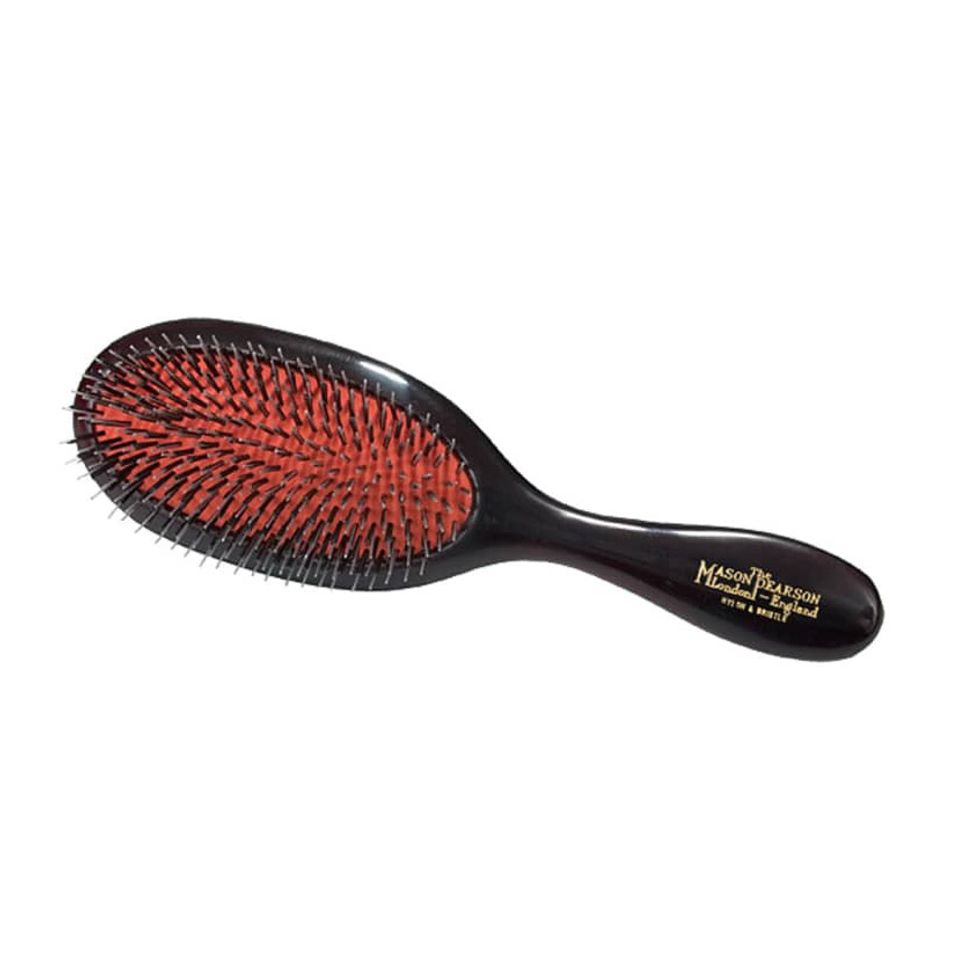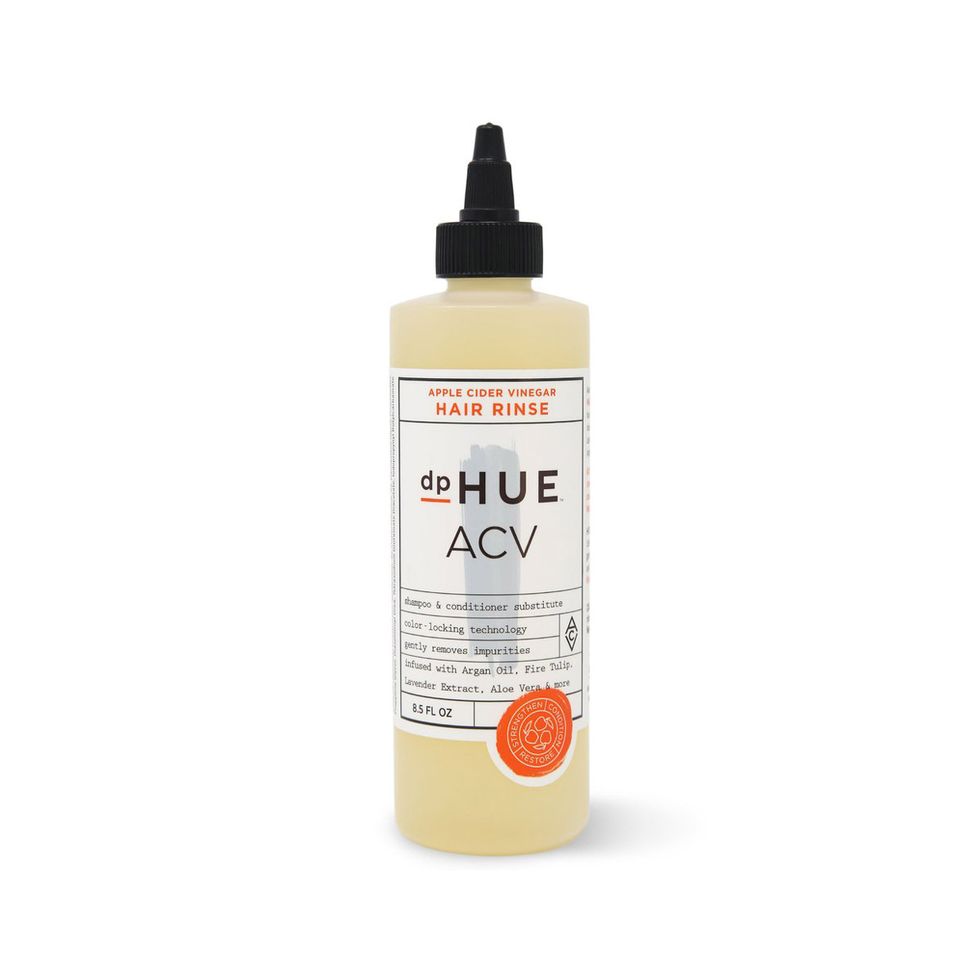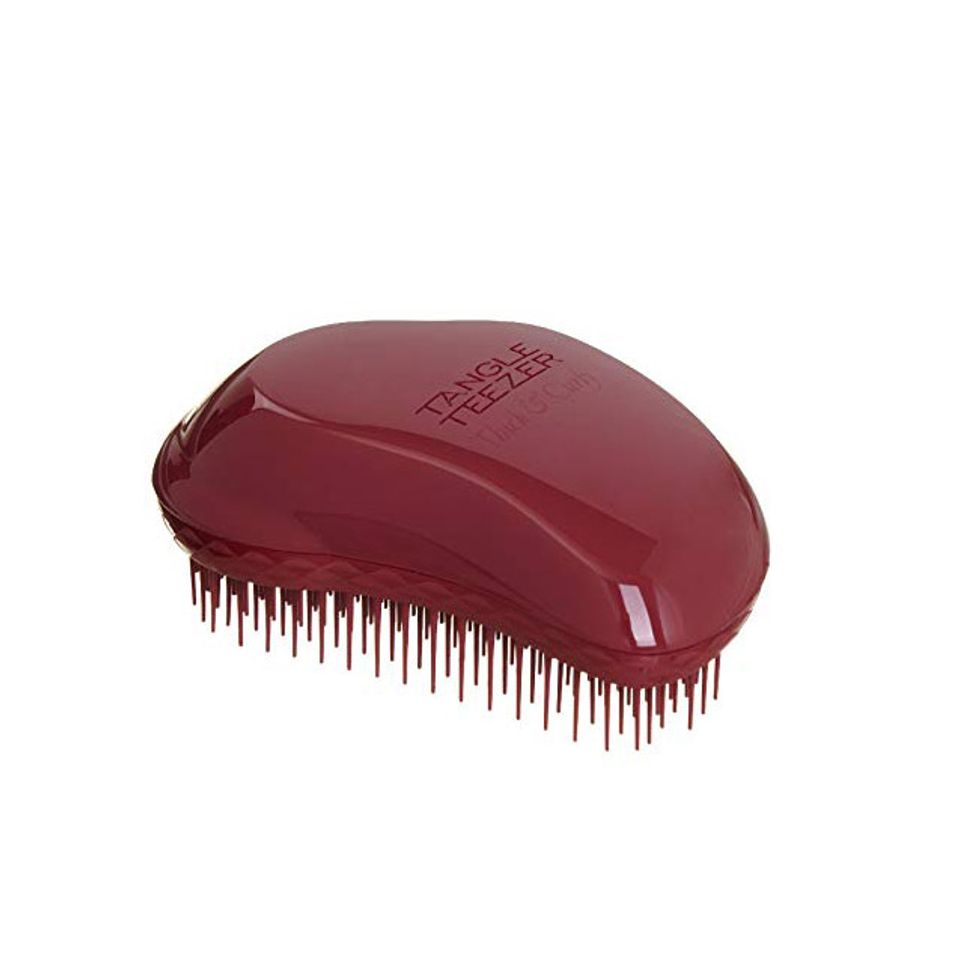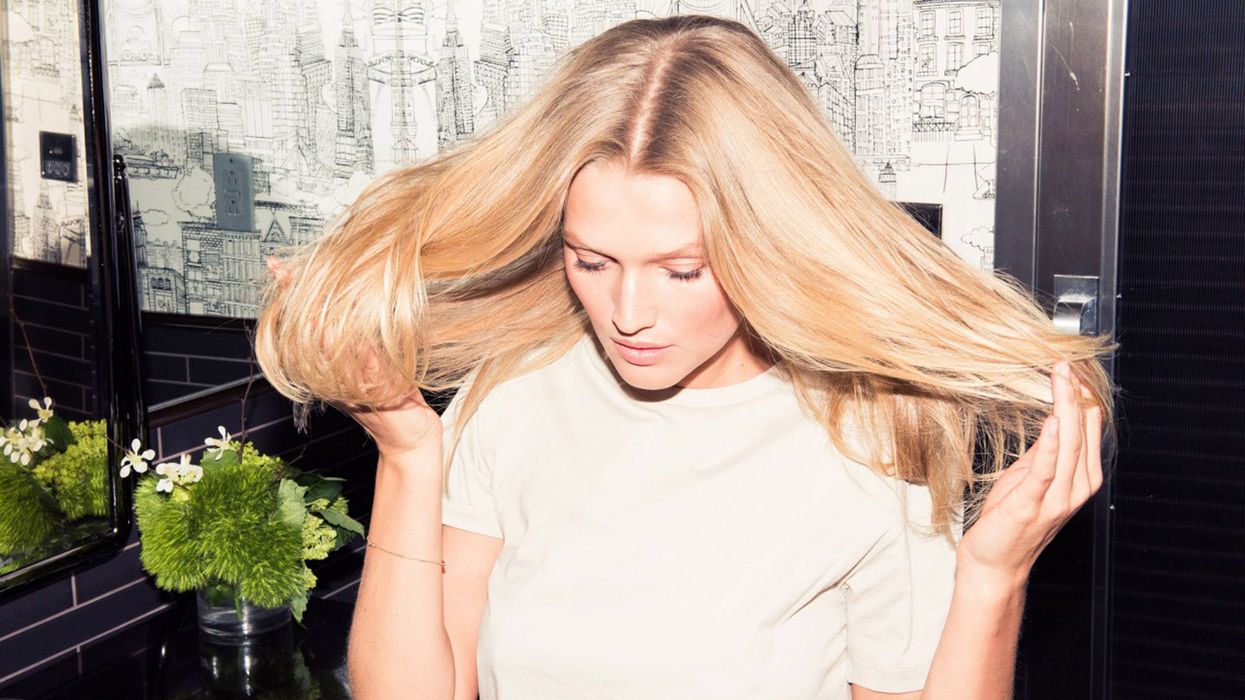
10 November, 2021
In the hierarchy of hair woes, dandruff has to be at the tippy top of our concerns. There’s nothing worse than noticing a couple of unwanted flakes on your shoulders halfway through the day or spotting buildup on your scalp in the bathroom mirror. Many people will experience dandruff at some point in their lives—half of the adult population, to be exact—but it is thankfully quite manageable if you know how to treat it. To get the lowdown on what exactly causes dandruff, and more important, how to get rid of it for good, we consulted trichologist (a dermatologist that specializes in hair and scalp health) and co-founder of FOURTEENJAY Salon David Adams for his expert advice. Here’s what he had to say about why you’re still struggling with dandruff.
First things first—what is dandruff?
“There’s a dry scalp, there’s dandruff, and then there’s seborrheic dermatitis, so it depends on how advanced the condition is. Dandruff is basically skin cells. With your normal skin, you don’t notice it that much because, when we have a shower or a bath, we rub ourselves with a towel, and that gets rid of the dead skin cells; but with the scalp, you can see it. If you have a dry scalp, it can be a dry dandruff, which means that every time you brush your hair, you get a snowstorm effect coming down. Or if you have oily skin, you get what's called pityriasis. That is where the oil and the white flakes mix. It’s a bit like powder and oil mixing, so it sticks to the scalp and becomes more like a yellow clump.
“Extreme cases of dandruff, they really bleed more onto seborrheic dermatitis. One of the questions I always ask people is Do you have this on other parts of your body? Most people are going to have it behind their knees or on the forearms, sometimes behind the ears, on the most sensitive parts of their body.”
What are some of the main causes of dandruff?
“A lot of different things. Stress is a big one, because if somebody’s stressed, they’re probably not eating well and they’re not exercising; they’re not looking after their body well. It manifests itself in different ways in every person, and a lot is [with] the scalp. Sometimes it can be caused by food allergies, [especially] dairy products. The environment and the seasons, especially at the moment. It’s so cold, and we’re all sitting in offices or homes with forced air. That’s drying the scalp out, as well.
“There is a difference between a dry scalp and dandruff. A dry scalp tends to come and go with the seasons or with whatever causes it. Dandruff seems to linger a bit longer and requires a bit more maintenance to remove it. Sometimes it’s basic things like not washing your hair enough. There’s this myth that we shouldn’t wash our hair every day; we should only wash it once or twice a week.”
So you’re saying daily washing is important for scalp health?
“The current vogue is for hairstylists to say, Just wet your hair in the morning and put tons of product on it and you get that cool, funky texture, and then trichologists will say, That’s great, imagine the buildup on that scalp after two or three days. [It’s like] putting makeup on and then not taking it off at night, and then waking up the next morning and just putting more on. So I think number one is to focus on daily cleansing if you have dandruff or if you have a flaky scalp.”
What are some of your favorite products for combating dandruff?
“Dandruff products, such as Head & Shoulders, etc., they’re really made more for men, because men have thicker, oilier scalps. Those products are not great on ladies’ hair, especially if she has any color processes or relaxers. They’re a bit rough for the scalp and for the hair. For ladies, I would say the best thing to do is Thicker Fuller Hair products—the scalp tonic is great. Cleansing is really important. Using good-quality shampoo is really important.”
If you’re using specialty products, how long does it usually take to get rid of dandruff?
“Unless you’re taking something that’s been prescribed for you, you normally have it for a long time—a few years. Unfortunately for ladies, there are so many things that can lead to a hormone imbalance in the body that can affect your hair and your scalp—pregnancy or postpartum, pre-menopause, during menopause, post-menopause. I say use whatever regular shampoo you love, and then alternate it with the dandruff product. If you’re using something stronger from a dermatologist or from a doctor, then they will prescribe how long you should use that. It’s typically around a month.”
“There’s a dry scalp, there’s dandruff, and then there’s seborrheic dermatitis, so it depends on how advanced the condition is. Dandruff is basically skin cells. With your normal skin, you don’t notice it that much because, when we have a shower or a bath, we rub ourselves with a towel, and that gets rid of the dead skin cells; but with the scalp, you can see it. If you have a dry scalp, it can be a dry dandruff, which means that every time you brush your hair, you get a snowstorm effect coming down. Or if you have oily skin, you get what's called pityriasis. That is where the oil and the white flakes mix. It’s a bit like powder and oil mixing, so it sticks to the scalp and becomes more like a yellow clump.
“Extreme cases of dandruff, they really bleed more onto seborrheic dermatitis. One of the questions I always ask people is Do you have this on other parts of your body? Most people are going to have it behind their knees or on the forearms, sometimes behind the ears, on the most sensitive parts of their body.”
What are some of the main causes of dandruff?
“A lot of different things. Stress is a big one, because if somebody’s stressed, they’re probably not eating well and they’re not exercising; they’re not looking after their body well. It manifests itself in different ways in every person, and a lot is [with] the scalp. Sometimes it can be caused by food allergies, [especially] dairy products. The environment and the seasons, especially at the moment. It’s so cold, and we’re all sitting in offices or homes with forced air. That’s drying the scalp out, as well.
“There is a difference between a dry scalp and dandruff. A dry scalp tends to come and go with the seasons or with whatever causes it. Dandruff seems to linger a bit longer and requires a bit more maintenance to remove it. Sometimes it’s basic things like not washing your hair enough. There’s this myth that we shouldn’t wash our hair every day; we should only wash it once or twice a week.”
So you’re saying daily washing is important for scalp health?
“The current vogue is for hairstylists to say, Just wet your hair in the morning and put tons of product on it and you get that cool, funky texture, and then trichologists will say, That’s great, imagine the buildup on that scalp after two or three days. [It’s like] putting makeup on and then not taking it off at night, and then waking up the next morning and just putting more on. So I think number one is to focus on daily cleansing if you have dandruff or if you have a flaky scalp.”
What are some of your favorite products for combating dandruff?
“Dandruff products, such as Head & Shoulders, etc., they’re really made more for men, because men have thicker, oilier scalps. Those products are not great on ladies’ hair, especially if she has any color processes or relaxers. They’re a bit rough for the scalp and for the hair. For ladies, I would say the best thing to do is Thicker Fuller Hair products—the scalp tonic is great. Cleansing is really important. Using good-quality shampoo is really important.”
If you’re using specialty products, how long does it usually take to get rid of dandruff?
“Unless you’re taking something that’s been prescribed for you, you normally have it for a long time—a few years. Unfortunately for ladies, there are so many things that can lead to a hormone imbalance in the body that can affect your hair and your scalp—pregnancy or postpartum, pre-menopause, during menopause, post-menopause. I say use whatever regular shampoo you love, and then alternate it with the dandruff product. If you’re using something stronger from a dermatologist or from a doctor, then they will prescribe how long you should use that. It’s typically around a month.”

When do you know if you should visit a trichologist or a dermatologist?
“If you’ve tried all the home cures and you’ve tried every shampoo and scalp tonic, and it’s still not doing something for you, then it’s time to go and visit a trichologist. Hair and scalp issues can take two or three months before you see an impact.”
Is there anything particularly unique or surprising about the skin on your scalp as opposed to your face?
“Not to sound cheeky, but I think the biggest thing is making people aware that they have a scalp. Most people, all they think about is their hair, and they use the shampoo they do for whatever reason, but they don’t really think about their scalp. It’s only when something really bad happens, like dandruff, then they go, Oh my god, I have a scalp and I’m not doing anything for it.”
Are there any other genetic factors that can influence whether or not you’ll have dandruff?
“Genetics is interesting—it doesn’t necessarily mean that because your mother or your father had something that you’re going to get it, but if you look at your family pool, if there is somebody who has similar skin and similar hair to you, the texture, the color, etc., I bet your lifestyle will follow a similar path.”
Is age a factor at all?
“Not really. You do notice that some people grow out of dandruff, especially with boys around the teenage years. Dandruff can be a huge symptom of other illnesses, as well. Your hair and your scalp are fed by the bloodstream, [so] if somebody has some sort of intense illness or high fever, a couple of months after that, you may find that you have developed dandruff or dermatitis, and that could be a side effect of the illness. If something’s going on with your hair and scalp today, normally something happened to you two or three months ago.”
Aside from daily shampooing and using specialty products, are there any other tips for promoting scalp health?
“One of the biggest mistakes people make is when they use conditioner, they massage [it] into the scalp. Conditioner is only meant for mid-length and ends. They contain creams and oils, and when you massage that into the scalp, you’re adding to your own sebaceous gland. If you’ve got an overactive scalp that's shedding skin, all of a sudden you have this oily mess on the scalp. It’s not great.
“The average consumer’s bathroom cabinet is stocked full of skin-care products. What are you doing for your scalp? You should treat your scalp just as you treat your face. If you treat it that well, then the hope is that we’re going to stay away from dry scalps and dandruff. Diet is also really important. Eating healthy, staying away from fatty foods, eating lots of protein.”
Does brushing your hair or doing a head massage help?
“That’s great. It doesn’t have to be expensive, but you can get one of those little round scalp brushes, then you massage your scalp before you shampoo it. Massage the scalp in circular motions—that also encourages microcirculation and brings the blood to the surface of the scalp. It just feels amazing, especially if you get somebody else to do it for you.”
“If you’ve tried all the home cures and you’ve tried every shampoo and scalp tonic, and it’s still not doing something for you, then it’s time to go and visit a trichologist. Hair and scalp issues can take two or three months before you see an impact.”
Is there anything particularly unique or surprising about the skin on your scalp as opposed to your face?
“Not to sound cheeky, but I think the biggest thing is making people aware that they have a scalp. Most people, all they think about is their hair, and they use the shampoo they do for whatever reason, but they don’t really think about their scalp. It’s only when something really bad happens, like dandruff, then they go, Oh my god, I have a scalp and I’m not doing anything for it.”
Are there any other genetic factors that can influence whether or not you’ll have dandruff?
“Genetics is interesting—it doesn’t necessarily mean that because your mother or your father had something that you’re going to get it, but if you look at your family pool, if there is somebody who has similar skin and similar hair to you, the texture, the color, etc., I bet your lifestyle will follow a similar path.”
Is age a factor at all?
“Not really. You do notice that some people grow out of dandruff, especially with boys around the teenage years. Dandruff can be a huge symptom of other illnesses, as well. Your hair and your scalp are fed by the bloodstream, [so] if somebody has some sort of intense illness or high fever, a couple of months after that, you may find that you have developed dandruff or dermatitis, and that could be a side effect of the illness. If something’s going on with your hair and scalp today, normally something happened to you two or three months ago.”
Aside from daily shampooing and using specialty products, are there any other tips for promoting scalp health?
“One of the biggest mistakes people make is when they use conditioner, they massage [it] into the scalp. Conditioner is only meant for mid-length and ends. They contain creams and oils, and when you massage that into the scalp, you’re adding to your own sebaceous gland. If you’ve got an overactive scalp that's shedding skin, all of a sudden you have this oily mess on the scalp. It’s not great.
“The average consumer’s bathroom cabinet is stocked full of skin-care products. What are you doing for your scalp? You should treat your scalp just as you treat your face. If you treat it that well, then the hope is that we’re going to stay away from dry scalps and dandruff. Diet is also really important. Eating healthy, staying away from fatty foods, eating lots of protein.”
Does brushing your hair or doing a head massage help?
“That’s great. It doesn’t have to be expensive, but you can get one of those little round scalp brushes, then you massage your scalp before you shampoo it. Massage the scalp in circular motions—that also encourages microcirculation and brings the blood to the surface of the scalp. It just feels amazing, especially if you get somebody else to do it for you.”
Photo: Shot on site at 6 Columbus, a Sixty Hotel; On Jonelle: Dress, Jonathan Simkhai; Sunglasses, Dior; Earrings, Paige Novick; Hair, Angela Soto; Makeup, Andriani.
Want more stories like this?
If You Have Color-Treated Hair, Consider This Treatment Between Appointments
Celebrity Stylist Mark Townsend on the Top Hair Trends for Spring
Big News: Our First Beauty Collab Is Here
Want more stories like this?
If You Have Color-Treated Hair, Consider This Treatment Between Appointments
Celebrity Stylist Mark Townsend on the Top Hair Trends for Spring
Big News: Our First Beauty Collab Is Here
